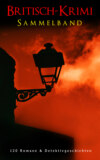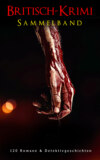Kitabı oku: «Pelham — Volume 02», sayfa 2
CHAPTER XXI
This is a notable couple—and have met
But for some secret knavery.
—The Tanner of Tyburn.
I had now been several weeks in Paris, and I was not altogether dissatisfied with the manner in which they had been spent. I had enjoyed myself to the utmost, while I had, as much as possible, combined profit with pleasure; viz. if I went to the Opera in the evening, I learned to dance in the morning; if I drove to a soiree at the Duchesse de Perpignan's, it was not till I had fenced an hour at the Salon des Assauts d'Armes; and if I made love to the duchess herself it was sure to be in a position I had been a whole week in acquiring from my master of the graces; in short, I took the greatest pains to complete my education. I wish all young men who frequented the Continent for that purpose, could say the same.
One day (about a week after the conversation with Vincent, recorded in my last chapter) I was walking slowly along one of the paths in the Jardin des Plantes, meditating upon the various excellencies of the Rocher de Cancale and the Duchesse de Perpignan, when I perceived a tall man, with a thick, rough coat, of a dark colour (which I recognized long before I did the face of the wearer) emerging from an intersecting path. He stopped for a few moments, and looked round as if expecting some one. Presently a woman, apparently about thirty, and meanly dressed, appeared in an opposite direction. She approached him; they exchanged a few words, and then, the woman taking his arm, they struck into another path, and were soon out of sight. I suppose that the reader has already discovered that this man was Thornton's companion in the Bois de Boulogne, and the hero of the Salon de Jeu, in the Palais Royal. I could not have supposed that so noble a countenance, even in its frowns, could ever have wasted its smiles upon a mistress of that low station to which the woman who had met him evidently belonged. However, we all have our little foibles, as the Frenchman said, when he boiled his grandmother's head in a pipkin.
I myself was, at that time, the sort of person that is always taken by a pretty face, however coarse may be the garments which set it off; and although I cannot say that I ever stooped so far as to become amorous of a chambermaid, yet I could be tolerably lenient to any man under thirty who did. As a proof of this gentleness of disposition, ten minutes after I had witnessed so unsuitable a rencontre, I found myself following a pretty little bourgeoise into a small sort of cabaret, which was, at the time I speak of (and most probably still is), in the midst of the gardens. I sat down, and called for my favourite drink of lemonade; the little grisette, who was with an old woman, possibly her mother, and un beau gros garcon, probably her lover, sat opposite, and began, with all the ineffable coquetries of her country, to divide her attention between the said garcon and myself. Poor fellow, he seemed to be very little pleased by the significant glances exchanged over his right shoulder, and, at last, under pretence of screening her from the draught of the open window, placed himself exactly between us. This, however ingenious, did not at all answer his expectations; for he had not sufficiently taken into consideration, that I also was endowed with the power of locomotion; accordingly I shifted my chair about three feet, and entirely defeated the countermarch of the enemy.
But this flirtation did not last long; the youth and the old woman appeared very much of the same opinion as to its impropriety; and accordingly, like experienced generals, resolved to conquer by a retreat; they drank up their orgeat—paid for it—placed the wavering regiment in the middle, and left me master of the field. I was not, however, of a disposition to break my heart at such an occurrence, and I remained by the window, drinking my lemonade, and muttering to myself, "After all, women are a great bore."
On the outside of the cabaret, and just under my window, was a bench, which for a certain number of sous, one might appropriate to the entire and unparticipated use of one's self and party. An old woman (so at least I suppose by her voice, for I did not give myself the trouble of looking, though, indeed as to that matter, it might have been the shrill treble of Mr. Howard de Howard) had been hitherto engrossing this settlement with some gallant or other. In Paris, no women are too old to get an amant, either by love or money. In a moment of tenderness, this couple paired off, and were immediately succeeded by another. The first tones of the man's voice, low as they were, made me start from my seat. I cast one quick glance before I resumed it. The new pair were the Englishman I had before noted in the garden, and the female companion who had joined him.
"Two hundred pounds, you say?" muttered the man; "we must have it all."
"But," said the woman, in the same whispered voice, "he says, that he will never touch another card."
The man laughed. "Fool," said he, "the passions are not so easily quelled—how many days is it since he had this remittance from England?"
"About three," replied the woman.
"And it is absolutely the very last remnant of his property?"
"The last."
"I am then to understand, that when this is spent there is nothing between him and beggary?"
"Nothing," said the woman, with a half sigh.
The man laughed again, and then rejoined in an altered tone, "Then, then will this parching thirst be quenched at last. I tell you, woman, that it is many months since I have known a day—night—hour, in which my life has been as the life of other men. My whole soul has been melted down into one burning, burning thought. Feel this hand—ay, you may well start—but what is the fever of the frame to that within?"
Here the voice sunk so low as to be inaudible. The woman seemed as if endeavouring to sooth him; at length she said—"But poor Tyrrell—you will not, surely, suffer him to die of actual starvation?"
The man paused for a few moments, and then replied—"Night and day, I pray to God, upon my bended knees, only one unvarying, unceasing prayer, and that is—'When the last agonies shall be upon that man—when, sick with weariness, pain, disease, hunger, he lies down to die—when the death-gurgle is in the throat, and the eye swims beneath the last dull film—when remembrance peoples the chamber with Hell, and his cowardice would falter forth its dastard recantation to Heaven—then—may I be there?"
There was a long pause, only broken by the woman's sobs, which she appeared endeavouring to stifle. At last the man rose, and in a tone so soft that it seemed literally like music, addressed her in the most endearing terms. She soon yielded to their persuasion, and replied to them with interest. "Spite of the stings of my remorse," she said, "as long as I lose not you, I will lose life, honour, hope, even soul itself!"
They both quitted the spot as she said this.
O, that woman's love! how strong is it in its weakness! how beautiful in its guilt!
CHAPTER XXII
At length the treacherous snare was laid,
Poor pug was caught—to town convey'd;
There sold. How envied was his doom,
Made captive in a lady's room!
—Gay's Fables.
I was sitting alone a morning or two after this adventure, when Bedos entering, announced une dame. This dame was a fine tall thing, dressed out like a print in the Magasin des Modes. She sate herself down, threw up her veil, and, after a momentary pause, asked me if I liked my apartment?
"Very much," said I, somewhat surprised at the nature of the interrogatory.
"Perhaps you would wish it altered in some way?" rejoined the lady.
"Non—mille remercimens!" said I—"you are very good to be so interested in my accommodation."
"Those curtains might be better arranged—that sofa replaced with a more elegant one," continued my new superintendant.
"Really," said I, "I am too, too much flattered. Perhaps you would like to have my rooms altogether; if so, make at least no scruple of saying it."
"Oh, no," replied the lady, "I have no objection to your staying here."
"You are too kind," said I, with a low bow.
There was a pause of some moments—I took advantage of it.
"I think, Madame, I have the honour of speaking to—to—to—" "The mistress of the hotel," said the lady, quietly. "I merely called to ask you how you did, and hope you were well accommodated."
"Rather late, considering I have been six weeks in the house," thought I, revolving in my mind various reports I had heard of my present visitor's disposition to gallantry. However, seeing it was all over with me, I resigned myself, with the patience of a martyr, to the fate that I foresaw. I rose, approached her chair, took her hand (very hard and thin it was too), and thanked her with a most affectionate squeeze.
"I have seen much English!" said the lady, for the first time speaking in our language.
"Ah!" said I, giving another squeeze.
"You are handsome, garcon," renewed the lady.
"I am so," I replied.
At that moment Bedos entered, and whispered that Madame D'Anville was in the anti-room.
"Good heavens!" said I, knowing her jealousy of disposition, "what is to be done? Oblige me, Madame," seizing the unfortunate mistress of the hotel, and opening the door to the back entrance—"There," said I, "you can easily escape. Bon jour."
Hardly had I closed the door, and put the key in my pocket, before Madame D'Anville entered.
"Do you generally order your servants to keep me waiting in your anti- room?" said she haughtily.
"Not generally," I replied, endeavouring to make my peace; but all my complaisance was in vain—she was jealous of my intimacy with the Duchesse de Perpignan, and glad of any excuse to vent her pique. I am just the sort of man to bear, but never to forgive a woman's ill temper, viz.—it makes no impression on me at the time, but leaves a sore recollection of something disagreeable, which I internally resolve never again to experience. Madame D'Anville was going to the Luxembourg; and my only chance of soothing her anger was to accompany her.
Down stairs, therefore, we went, and drove to the Luxembourg; I gave Bedos, before my departure, various little commissions, and told him he need not be at home till the evening. Long before the expiration of an hour, Madame D'Anville's ill humour had given me an excuse for affecting it myself. Tired to death of her, and panting for release, I took a high tone—complained of her ill temper, and her want of love—spoke rapidly— waited for no reply, and leaving her at the Luxembourg, proceeded forthwith to Galignani's, like a man just delivered from a strait waistcoat.
Leave me now, for a few minutes, in the reading-room at Galignani's, and return to the mistress of the hotel, whom I had so unceremoniously thrust out of my salon. The passage into which she had been put communicated by one door with my rooms, and by another with the staircase. Now, it had so happened, that Bedos was in the habit of locking the latter door, and keeping the key; the other egress, it will be remembered, I myself had secured; so that the unfortunate mistress of the hotel was no sooner turned into this passage than she found herself in a sort of dungeon, ten feet by five, and surrounded, like Eve in Paradise, by a whole creation— not of birds, beasts, and fishes, but of brooms, brushes, unclean linen, and a wood-basket. What she was to do in this dilemma was utterly inconceivable; scream, indeed, she might, but then the shame and ridicule of being discovered in so equivocal a situation, were somewhat more than our discreet landlady could endure. Besides, such an expose might be attended with a loss the good woman valued more than reputation, viz. lodgers; for the possessors of the two best floors were both Englishwomen of a certain rank; and my landlady had heard such accounts of our national virtue, that she feared an instantaneous emigration of such inveterate prudes, if her screams and situation reached their ears.
Quietly then, and soberly, did the good lady sit, eyeing the brooms and brushes as they grew darker and darker with the approach of the evening, and consoling herself with the certainty that her release must eventually take place.
Meanwhile, to return to myself—from which dear little person, I very seldom, even in imagination, digress—I found Lord Vincent at Galignani's, carefully looking over "Choice Extracts from the best English Authors."
"Ah, my good fellow!" said he, "I am delighted to see you; I made such a capital quotation just now: the young Benningtons were drowning a poor devil of a puppy; the youngest (to whom the mother belonged) looked on with a grave earnest face, till the last kick was over, and then burst into tears. 'Why do you cry so?' said I. 'Because it was so cruel in us to drown the poor puppy!' replied the juvenile Philocunos. 'Pooh," said I, "'Quid juvat errores mersa jam puppe fateri.'" Was it not good?—you remember it in Claudian, eh, Pelham? Think of its being thrown away on those Latinless young lubbers! Have you seen any thing of Mr. Thornton lately?"
"No," said I, "I've not, but I am determined to have that pleasure soon."
"You will do as you please," said Vincent, "but you will be like the child playing with edged tools."
"I am not a child," said I, "so the simile is not good. He must be the devil himself, or a Scotchman at least, to take me in."
Vincent shook his head. "Come and dine with me at the Rocher," said he; "we are a party of six—choice spirits all."
"Volontiers; but we can stroll in the Tuileries first, if you have no other engagement."
"None," said Vincent, putting his arm in mine.
As we passed up the Rue de la Paix, we met Sir Henry Millington, mounted on a bay horse, as stiff as himself, and cantering down the street as if he and his steed had been cut out of pasteboard together.
"I wish," said Vincent, (to borrow Luttrel's quotation,) "that that master of arts would 'cleanse his bosom of that perilous stuff.' I should like to know in what recess of that immense mass now cantering round the corner is the real body of Sir Henry Millington. I could fancy the poor snug little thing shrinking within, like a guilty conscience. Ah, well says Juvenal,
"'Mors sola fatetur Quantula sint hominum corpuscula.'"
"He has a superb head, though," I replied. I like to allow that other people are handsome now and then—it looks generous."
"Yes," said Vincent, "for a barber's block: but here comes Mrs. C—me, and her beautiful daughter—those are people you ought to know, if you wish to see human nature a little relieved from the frivolities which make it in society so like a man milliner. Mrs. C—has considerable genius, combined with great common sense."
"A rare union," said I.
"By no means," replied Vincent. "It is a cant antithesis in opinion to oppose them to one another; but, so far as mere theoretical common sense is concerned, I would much sooner apply to a great poet or a great orator for advice on matter of business, than any dull plodder who has passed his whole life in a counting-house. Common sense is only a modification of talent—genius is an exaltation of it: the difference is, therefore, in the degree, not nature. But to return to Mrs. C—; she writes beautiful poetry—almost impromptu; draws excellent caricatures; possesses a laugh for whatever is ridiculous, but never loses a smile for whatever is good. Placed in very peculiar situations, she has passed through each with a grace and credit which make her best eulogium. If she possesses one quality higher than intellect, it is her kindness of heart: no wonder indeed, that she is so really clever—those trees which are the soundest at the core produce the finest fruits, and the most beautiful blossoms."
"Lord Vincent grows poetical," thought I—"how very different he really is to that which he affects to be in the world; but so it is with every one—we are all like the ancient actors: let our faces be ever so beautiful, we must still wear a mask."
After an hour's walk, Vincent suddenly recollected that he had a commission of a very important nature in the Rue J. J. Rousseau. This was—to buy a monkey. "It is for Wormwood," said he, "who has written me a long letter, describing its' qualities and qualifications. I suppose he wants it for some practical joke—some embodied bitterness—God forbid I should thwart him in so charitable a design!"
"Amen," said I; and we proceeded together to the monkey-fancier. After much deliberation we at last decided upon the most hideous animal I ever beheld—it was of a—no, I will not attempt to describe it—it would be quite impossible! Vincent was so delighted with our choice that he insisted upon carrying it away immediately.
"Is it quite quiet?" I asked.
"Comme un oiseau," said the man.
We called a fiacre—paid for monsieur Jocko, and drove to Vincent's apartments; there we found, however, that his valet had gone out and taken the key.
"Hang it," said Vincent, "it does not signify! We'll carry le petit monsieur with us to the Rocher."
Accordingly we all three once more entered the fiacre, and drove to the celebrated restaurateur's of the Rue Mont Orgueil. O, blissful recollections of that dinner! how at this moment you crowd upon my delighted remembrance! Lonely and sorrowful as I now sit, digesting with many a throe the iron thews of a British beef-steak—more anglico— immeasurably tough—I see the grateful apparitions of Escallopes de Saumon and Laitances de Carps rise in a gentle vapour before my eyes! breathing a sweet and pleasant odour, and contrasting the dream-like delicacies of their hue and aspect, with the dire and dure realities which now weigh so heavily on the region below my heart! And thou, most beautiful of all—thou evening star of entremets—thou that delightest in truffles, and gloriest in a dark cloud of sauces—exquisite foie-gras!— Have I forgotten thee? Do I not, on the contrary, see thee—smell thee— taste thee—and almost die with rapture of thy possession? What, though the goose, of which thou art a part, has, indeed, been roasted alive by a slow fire, in order to increase thy divine proportions—yet has not our Almanach—the Almanach des Gourmands—truly declared that the goose rejoiced amid all her tortures—because of the glory that awaited her? Did she not, in prophetic vision, behold her enlarged and ennobled foie dilate into pates and steam into sautees—the companion of truffles—the glory of dishes—the delight—the treasure—the transport of gourmands! O, exalted among birds—apotheosised goose, did not thy heart exult even when thy liver parched and swelled within thee, from that most agonizing death; and didst thou not, like the Indian at the stake, triumph in the very torments which alone could render thee illustrious?




















